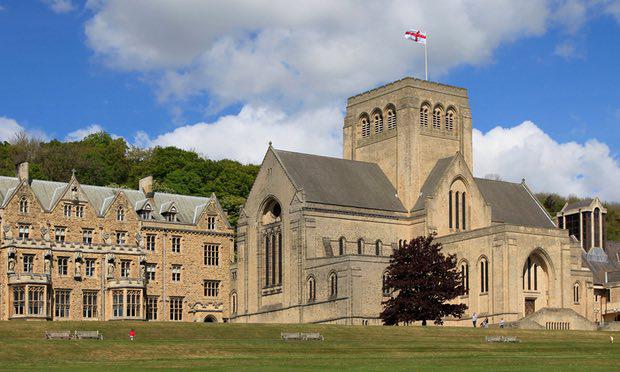|
UK child abuse inquiry: three Catholic schools 'should form case study'
By Owen Bowcott
Three prominent Benedictine boarding schools – Ampleforth, Downside and Worth – should be examined as a combined case study for the UK child sex abuse investigation into the Catholic church, a preliminary hearing has been told. The work of the archdiocese of Birmingham and its schools should also feature as a complementary case study, according to the lawyer in charge of the Catholic church strand of the independent inquiry into child sexual abuse (IICSA). Setting out her recommendations for hearings planned in November, Riel Karmy-Jones QC proposed that an examination of a fourth school should be delayed because of an imminent criminal trial involving a former teacher. Inquiries into allegations at Fort Augustus Abbey school in the Scottish Highlands should also be restricted to the movement of English monks transferred to the institution, Karmy-Jones suggested, because a separate Scottish inquiry into child sex abuse would deal with any offences committed there. At the inquiry’s preliminary hearing in London on Tuesday, tensions surfaced over the scope of the forthcoming investigation into the safeguarding failures of Catholic institutions. Although many former pupils and individuals have been granted core participant status, it emerged that not all would be able to give evidence about their traumatic experiences. Having raised expectations about the extent of the investigation, the inquiry is now having to set limits to the number of case studies it can complete. The investigation into the Catholic church is one of 13 strands the IICSA is committed to examining. The 15-day hearing starting in November will examine the prevalence of sexual abuse, policies and practices of safeguarding children and “the extent to which there was a culture which inhibited the proper investigation of child sex abuse” within Catholic institutions, Karmy-Jones said. “It was made plain that the inquiry is obliged to take a proportionate approach and will not be in a position to investigate fully each and every allegation from core participants,” she explained. A dispute also arose about whether core participants who received documents before hearings should be required to sign confidentiality agreements preventing the release of material relating to the public inquiry. Submissions were made suggesting two other Catholic institutions – the Comboni Missionaries (formerly known as the Verona Fathers) and the Daughters of Charity of St Vincent de Paul – should be made the subject of additional case studies. David Enright, a solicitor at Howe and Co, representing individuals who claim they were abused at Comboni schools, said the Benedictine schools were not representative of the overall Catholic education system. One in 10 children in England and Wales are educated in Catholic schools, he explained: “It is an organisation over which a cloud of suspicion hangs, [suspicion] that it has inhibited the investigation of child sexual abuse and sheltered abusers in its ranks.” At one school run by the Comboni order, Enright said, the captain of the school led a delegation to the headmaster alleging that children were being abused. He was told to obtain written statements in support of the claim, which he did. “The abuser was then removed from the school and sent to Uganda to become the commissioner of boy scouts in the country,” Enright said. “The police were not notified of the abuse; he has never been charged.” Jason Beer QC, for the Metropolitan police, told the hearing that both the police and the Crown Prosecution Service believed it would be possible to hear evidence about Ampleforth, Downside and Worth and their associated Benedectine abbeys without prejudicing the trial involving a former teacher at another school. The chair of the inquiry, Alexis Jay, and her panel will decide in the coming weeks the final schedule of Catholic church hearings. After the preliminary hearing, Jonathan West, a campaigner against abuse who has been granted core participant status, said: “As a condition for receiving further documents, survivors [have been asked to] sign a confidentiality undertaking that bars them from speaking in public about any document on any subject that they receive from the inquiry. “This is a ludicrous over-reaction, and contrary to the home secretary’s explicit instruction to conduct the inquiry with the maximum possible degree of transparency. In some cases, child sex abuse has not been discovered promptly in part because institutions have used onerous confidentiality obligations to prevent whistleblowers from disclosing concerns which would cause unwelcome publicity. It is ironic to see the inquiry displaying precisely the habits it will have to investigate and expose in others.”
|
.
Any original material on these pages is copyright © BishopAccountability.org 2004. Reproduce freely with attribution.
